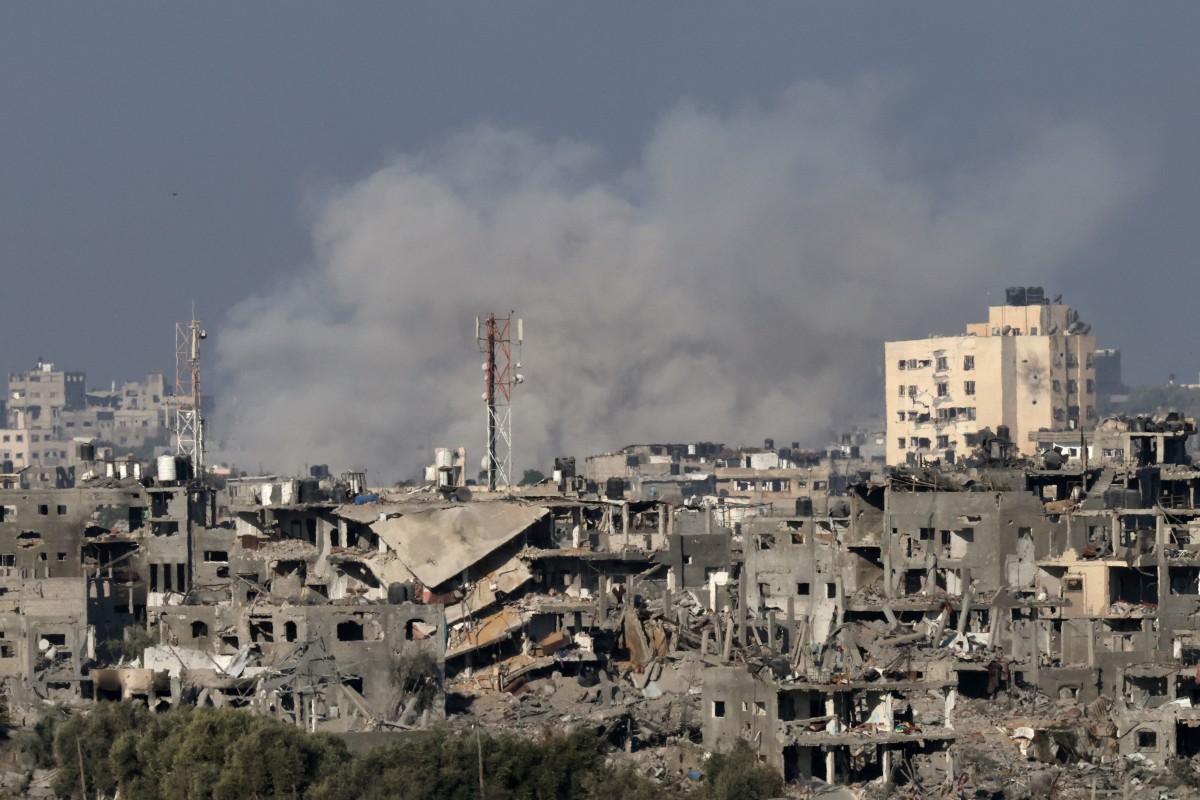
The Gaza Strip is boiling and burning again with an understandably huge collateral damage. The death tolls on both sides of the conflict, especially of innocent women and children, are increasing in their thousands, eliciting cries from humanitarian organisations in Gaza which have found it extremely difficult to cope with the crisis as the Israeli Defence Forces deal deadly blows on Hamas and its military machine which has become a thorn in the lives of the Israelis in the attempt by the latter to “reclaim” the Palestinian land “forcefully” taken over by the Israeli state. The condition of the Gazans and by implication some Israeli citizens has worsened since 2007 when Hamas took over power in Gaza.
Since the current war between Israel and Hamas began, occasioned by the unprovoked killings and hostage-taking of Israeli citizens and other nationals on October 7, 2023, the United Nations, some say, in its usual divisive and weak political positions and positioning, has not been able to come up with a road map on how to resolve the crisis and agree on a permanent way forward for the Palestinians and their Israeli neighbours. Apart from the pounding of Hamas and its war infrastructure, many civilians, especially children and women, are dying as food, fuel, electricity and other human-enabling materials are either in short supply or completely run out.
The latest war, according to informed sources, was triggered by the complete disagreement by Hamas and other Middle East forces opposed to any meaningful move for a re-establishment of diplomatic relations between Israel and Saudi Arabia. By Hamas’s strategic calculations, its latest war gambit is aimed at stopping other willing Arab countries from having diplomatic relations with Israel. Completely free and normalised relations would not be in the interest of Hamas and its quest for a Palestinian homeland. By hitting Israel Hamas knew that Israel would respond with strong-arm tactics and these would provoke Saudi Arabia into halting the ongoing move to re-establish relations with Israel thereby getting the support of the Arab league.
It is mind-boggling that peace and good neighbourliness have been missing in the Middle East for many centuries in a region that produced the two leading and heavily subscribed religions in the world. It should be noted that the Middle East crisis began millions of years ago. Both the Jews and the Arabs have come a long way and as history has it, they were sired by one progenitor even though from different women.
God, according to the Biblical account, had asked Abram (Abraham) whom he so much loved to leave the land of Ur (today’s Iraq) to move to Cannan land, a land flowing with milk and honey. Both the Jews (Israelites) and their Palestinian cousins (from Ishmael) had lived in this disputed land area many centuries ago. Each had been in charge at one time or the other up to the Babylonian captivity and other series of occupations and enslavement. Both groups have a strong stake in what is today known as Palestine. Truth be told the whole hullabaloo between the two groups is Jerusalem, a land claimed by both groups as theirs because of the assumed holy provenance. From what can be seen between Israel and Palestine, even if a two-state solution comes into being, there will not be any let-up in the bickering between the two neighbours. The ultimate diadem is Jerusalem.
Tehran, the bete noire of the West and active supporter and armer of Hamas, may not relent in its support for Hamas, and other Palestinian Jihadist groups including Hezbollah to foment trouble in Gaza and Israel. Israel will neither sit idly by nor watch Iran to become a hegemonic force in the Middle East. Palestine and its people are truly puns on the chessboard in the proxy war between Iran, its ideological supporters on the one hand and the United States, the West and their minions in the Middle East. It is obvious that many destabilising forces have almost made it impossible for the Oslo Accord(s) to work. Hamas and Hezbollah, two strong militant forces which have been declared as terrorist organisations by Britain and other western countries, do not want to make peace with Israel and have been gung-ho in their hostile relationship with Israel.
Israel is stunned by its security lapse on October 7, 2023, when Hamas and the Palestine Islamic Jihad in their “Operation Al-Aqsa Flood” killed 1,400 Israelis, raped and humiliated many Israelis and other nationals after a ruthless six-hour operation. It is indubitable that Israelis’ rage in its response to Hamas is aimed at bringing the group to a hors de combat and creating a new political atmosphere in Gaza. But this is at a huge humanitarian cost as the conflict has become awful and tragic in Gaza land.
The tactics and strategies of Hamas will not by any standard bring freedom for/to the Palestinian people. This is because Hamas, a reactionary organisation with about 45 per cent of the Gazans supporting it, pretends to be a resistance movement but in all its posturing and raison d’etre it is not working and representing the interest of the poor Palestinians who live in poverty and under humiliating circumstances. Hamas’s rank and file members live under well-protected tunnels while the decision-making echelon lives in far away Qatar enjoying the best that life could offer. The Gazans and other Palestinians face the horrifying heat of the war each time a conflict arises between Hamas and Israel.
In the West Bank where Mahmoud Abbas leads the Palestine Organisation, it is curious to note that he enjoys not more than 26 per cent support of the people. The leadership of the organisation is seen as very corrupt and is not trusted by the people. In all of the humanitarian crises in Gaza and the West Bank, it is the ordinary people that are subjected to cruelty, misery and acute poverty. Both the ordinary Palestinians and their Israeli counterparts suffer more in the unending spasmodic war between the belligerent Israeli forces and the Palestinian forces.
The United Nations has been weak and thoroughly incompetent in resolving the Palestinian question since 1948 when the Israeli state was created. Each time fissiparous forces in the Middle East notice genuine efforts at reconciling the forces at play in the Middle East, they create more crises that put peace in almost jeopardy. The UN should not wait for a spat to occur before it shows permanent interest in the Middle East.
In the crisis that has defined the Middle East, no group is innocent and none can claim to be right. Both the Israelis and the Palestinians are ruled by ancient grudges which every generation of theirs has become part and parcel of. Third parties like the UN and the United States must work hard to ensure that the two-state solution works in the interest of the ordinary Palestinians and the Israelis. As a pragmatic way of bringing the current crisis to an end, Hamas must be made to release and return the over 240 Israelis and other nationals that were kidnapped under humiliating and terrible circumstances on October 7. This is capable of guaranteeing a ceasefire beyond the recently announced four-hour daily pause that the Israeli government has given on humanitarian grounds to allow civilians to move southwards.
A permanent solution to the crisis will require a no-holds-barred international conference on the Palestinian question with a view to negotiating a lasting peace between the Israelis and the Palestinians in the larger interest of the Middle East and the world. And from the look of things, this can only be possible with the dismantling of the war machine of Hamas.
Prof. Uwasomba teaches at the Department of English, Obafemi Awolowo University, Ile-Ife





